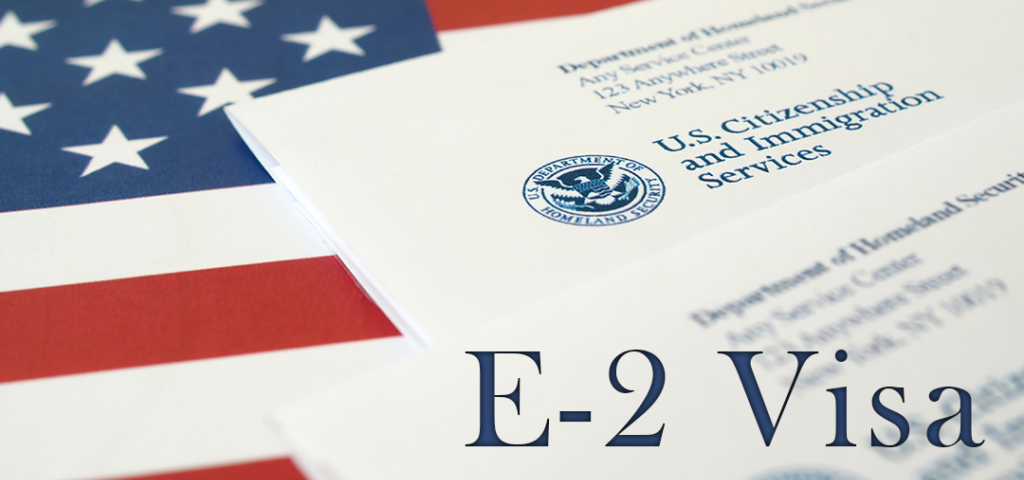Go Mini’s Featured in Business Journal for Exceeding Expectations in 2021
February 3, 2022In the last week, the U.S. E-2 visa situation has changed dramatically. As one of the earliest immigration lawyers who participated in the E-2 visa application for third-country passports, the author would like to analyze the corresponding short-, medium- and long-term countermeasures for this sudden political change.
What happened?
In a nutshell, the U.S. Congress passed a new law, adding the requirement that investors who apply for E-2 visas with third-country passports from treat countries (i.e Grenada, Turkey, etc.) need to live in the treaty country for 3 years. The relevant change is highlighted in yellow as follows:
"(E) an alien entitled to enter the United States under and in pursuance of the provisions of a treaty of commerce and navigation between the United States and the foreign state of which he is a national, or, in the case of an alien who acquired the relevant nationality through a financial investment and who has not previously been granted status under this subparagraph, the foreign state of which the alien is a national and in which the alien has been domiciled for a continuous period of not less than 3 years at any point before applying for a nonimmigrant visa under this subparagraph, and the spouse and children of any such alien if accompanying or following to join such alien; (i) solely to carry on substantial trade, including trade in services or trade in which the alien is a national; or (ii) solely to develop and direct the operations of an enterprise in which the alien has invested, or of an enterprise in which the alien is actively in the process of investing, a substantial amount of capital. (cited with emphasis on certain terms)
The new law is expected to be signed into law by President Biden any day. A more detailed explanation is that the above-mentioned “3-year residency requirement” was attached to the Act (AMIGOS Act) granting Portugal E-2 treaty country status, which in turn was attached to the annual defense budget for the 2023 fiscal year. Since the defense budget is an important bill to maintain the national defense of the United States, it must be passed. Therefore, this major E-2 change was attached to the defense budget without any warning or legislative debate. The author believes that, except for individual congressmen who initiated the AMIGOS Act, the vast majority of congressmen did not pay attention to this inconspicuous provision contained in the bill, and its possible huge impact when they voted to pass the defense budget. At the time of writing (December 20, 2022), the bill has been passed by the House of Representatives and Senate. Due to the importance of the defense budget, we have reason to believe that President Biden will sign it soon and the E-2 changes will take effect immediately.
The specific content of the E-2 changes
The E-2 changes present a new eligibility requirement for the E visa at the level of the “Immigration and Nationality Act” of the United States, that is, for (1) the initial application for an E visa; (2) foreign applicants who have obtained the nationality of a treaty country need to live in the treaty country for more than 3 years before they can apply. This means that the E-2 extension application of investors who have already obtained the E-2 visa is not subject to this rule.
Possible Strategies
1. Short-term Strategy – Do you consider filing an E-2 application now while understanding the risks and grabbing the last train?
For customers who are already preparing for E-2 submission, if they can submit and get approved before the bill takes effect, they will naturally not be affected by the new policy. However, based on the fact that the defense budget should be signed and passed by the President any day, and the E-2 interview at the Consulate General can only be scheduled in Guangzhou after March 2023, the possibility of being able to seize the last train is very small.
Once the bill is signed into effect, in theory this new regulation has already come into effect. Of course, since the change is at the basic legal level of the “Immigration and Nationality Act”, updated federal regulations need to be promulgated on top of this basic law, as well as the State Department’s visa officer case manual and updated visa application form.
Therefore, as long as E-2 investors understand and accept the possible uncertain risks of rushing to the last train, they can try to make an appointment for an interview as soon as possible to maximize the possibility of getting on the train. Of course, since the interview time of the consulate has been postponed to March 2023, it may be necessary to try other embassies and consulates that can quickly provide interview opportunities if the investor wants to assume this risk.
2. Medium-term strategy – Challenging the legal interpretation of “financial investment” in the law
As stated above, the new law only limits E-2 applicants who are (1) first-time applicants and (2) obtain their passports through a “financial investment.” The concept of “financial investment” is not a definitive concept defined by the Immigration and Nationality Act. According to the case of Scheidler v. Nat’l Org. for Women, Inc. 537 USD 393 (2003), the principle of legal interpretation in the United States, is that in the absence of a clear legislative intent of Congress, if a word in the law is not clearly defined, it should be construed in accordance with the ordinary common law definition of that term. However, under the common law, that is, under the framework of contract law in the United States, there is a clear requirement for “investment” to “create income”. Therefore, for investors who obtain passports of treaty countries through donations (or certain fixed deposits with no returns), challenging the legal interpretation of “financial investment” for investors who “donated” is a legal defense that can be tried. Of course, the author cannot predict whether the trial judge or the visa officer will agree with this point of view. It may be necessary to go through a lawsuit to make a final confirmation of the feasibility of this approach.
3. Long-term strategy 1 – change the application direction to EB-5, EB1C or C-1
For some suitable E-2 investors, it is possible to meet the requirements of L-1/EB-1C or EB-5 if they can increase the scale of the enterprise or the amount of investment. Of course, EB-5, L-1, and EB-1C have specific administrative requirements to be aware of. For EB-5, due to the passage of the revised EB-5 regulations in 2022; if the project location is in a rural or high unemployment area (“TEA”), it is possible to obtain an EB-5 green card in a relatively short period of time if the investment can be changed into an EB-5 direct investment project. Due to limited space, the author will not go into details about the strategy of changing the application direction. Interested readers can contact me individually for discussion.
4. Long-term strategy 2 – Political lobbying
Obviously, this E-2 change was very sudden, and its legislative procedure was very unfair to investors. There was negative news about any third-country E-2 project this year, and for a non-immigrant visa project that attracts investment and creates jobs for the United States, the E-2 visa is beneficial to the national interests of the United States without any harm. Of course, I don’t think it is realistic to make any changes in the defense budget at this stage. However, in the long run, this non-immigrant program that benefits the US economy has a lot of room for political lobbying. Since individual congressmen are able to act secretly through this unfair form, our industry should also take active actions to state the significant contribution of third-country E-2 investors to the US economy, express our demands, and attempt to use political lobbying to amend the law again. If you are interested in participating in or understanding the process of political lobbying, you can contact the author of this article, lawyer Oliver Yang ([email protected]/WeChat oliveyanglaw1). The author hopes to gather the greatest power in the industry and cooperate with the best lobbying team in Washington to try to solve this problem at the legislative level.
This article is for communication purposes only and does not represent the legal opinion or interpretation of the law issued by the American Ruiming Wenze Law Firm or DMD Ventures or its affiliated companies.
【about the author】

Yang Fankai, Ruiming Wenze Law Firm
Deputy Director of Immigration Department
Juris Doctor (JD), University of Virginia
WeChat: oliveryanglaw1
Learn more about U.S. legal policies

